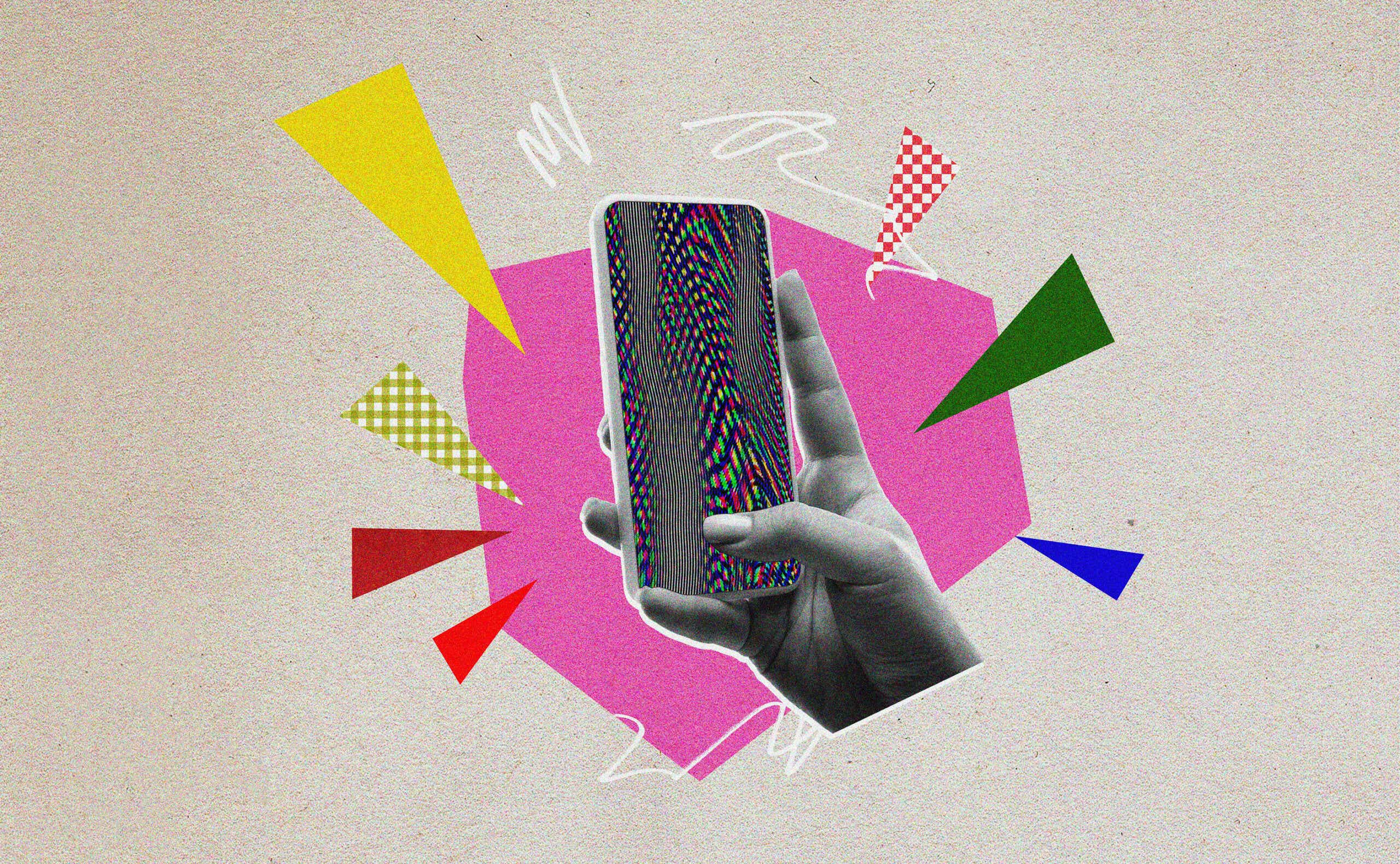Fighting with your family? It might be because of your online presence.
‘Tis the season for laughter, family, and wine-glass-shattering arguments over politics and controversial TikTok videos at the dinner table. Is it even possible at this point in American history to enjoy a three-hour meal with people who don’t share your exact same political values? Given how many international and domestic crises we’re facing right now, it seems unlikely you’d get through an entire meal without mentioning one at least minimally controversial thing. What else is there to talk about? The weather!? Nope, that can swiftly turn into a debate about climate change.
For many Americans, it has become increasingly difficult to break bread with friends or family without breaking out in hives along the way. However, if you want to avoid a full-on family rift, you’re better off facing controversial topics with relatives face-to-face than on social media, which might happen if you only engage with that controversial cousin behind the safety of your screen.
We are a polarized nation, and social media seems to be contributing to those divides, even between blood relatives. But why, exactly, and how do we deal with it?
Katie Couric Media spoke with Chris Bail, Ph.D., a professor of sociology, political science, and public policy at Duke University, where he founded the Polarization Lab. Dr. Bail studies how artificial intelligence(and social media shape human behavior.
How social media can cause tension within families
“The number one reason people are harassed online is for expressing political views, and often that harassment occurs within families,” Dr. Bail explains. He knows this knowledge firsthand from his work studying this topic at the Duke Polarization Lab. “We’ve done dozens of interviews with Republicans and Democrats all over the United States, and consistently we hear stories about families that fall apart because of things that happened on social media.”
But why is social media specifically such a threat to a happy, healthy family dynamic?
“One way to think about it is that we’re being exposed to too much complexity, and it’s difficult for our minds to make sense of it,” Dr. Bail explains. “When we use social media to understand how other people think, we reduce a lot of complexity to simple prejudices and stereotypes.”
This can all start to feel a little bit abstract, so here’s a much more concrete example.
“Let’s say Uncle Bob doesn’t agree with you on some political topic,” Dr. Bail says, “and you only see Uncle Bob online, and he’s just going off on an issue that you’re already upset about. If that’s all that you have as a representation of him, that has the power to tarnish your relationship with him, regardless of family ties. ”On the other hand, if you didn’t see Bob’s opinions on social media, and instead learned about his opinions by talking to him for an hour or so, you might come away with a different experience. “When we engage in good-faith conversations, we usually see that there’s a little bit more complexity than what might have appeared, on social media, to be a simplistic statement,” Dr. Bail notes. “We get to hear and see a person’s more comprehensive worldview.”
According to Dr. Bail and his colleagues at the Duke Polarization Lab, when people get together in person for even just a quick, 15-minute conversation, their prejudices against one another can dramatically decrease.
Is social media the only thing to blame for polarization?
Over the last decade, countless studies have confirmed that social media is, in one way or another, responsible for increasing political polarization for people all over the globe — but is social media the only factor to blame for that?
For Dr. Bail, the answer is no.
“We’ve seen the rise of political tensions between different ideological groups long before social media,” he says, “and while social media certainly contributes to that polarization, it’s hardly the only factor. Other sources of this increasing sense of friction might include the rise of cable news, increased political strategies related to negative campaigning, and the southern realignment of the Republican Party in the late 60s, to offer a few examples.”
There’s another important aspect of this conversation to consider: Regardless of how toxic social media can be, do we really think it’s going anywhere, any time soon?
“If you look at anyone younger than 30, they’re living massively online,” Dr. Bail says. “So the idea that we’re ever going to return to some earlier, happier version of humanity — if that even actually existed — is just kind of a fantasyland way of thinking.”
How to turn down the temperature at your family dinner
It might be helpful to think of social media as a Pandora’s box of technology: Now that it’s been unleashed onto the world, you can’t waste time thinking about how to restrain it. That’s never going to happen.
“I think what we need is for people to become more reflective social media users,” Dr. Bail suggests. “This is easier said than done, obviously, but we need to start to understand that we’re voting with our thumbs, in the same way that people like to say you’re voting with your wallet.”
Every single time you click a button, watch a video, or record and share something yourself, you’re contributing to a certain vision of the future, whether you realize it or not. “Anytime we argue with someone online, we are effectively telling these machine-learning algorithms what we believe in and to prioritize more of this content on our feeds.”
We also have to consider the way we consume and share social media content. For better or worse, people will derive impressions of you based on what you post, comment on, or like. And for those people, maybe consider that not everyone is using their platform as a soapbox and some might be exploring different perspectives — which is why it’s better to address tough topics with relatives in person.
If you’re interested in living in a world where you get to enjoy a daily TikTok-fueled serotonin boost and you also get to sit next to unpredictable Uncle Bob at Thanksgiving dinner without getting into a fistfight, keep one thought in mind: Changing the way we use social media, and the way we let it use us, is going to take time.
“None of this behavior change will happen overnight,” Dr. Bail warns. “But consider this food for thought: If you ask Americans what they think goes viral on social media, they tend to say that negative and hateful content is what tends to blow up online. But if you ask them what they want to go viral, they often talk about positive, consensus-building content. So maybe that’s a good place to focus our efforts.”













